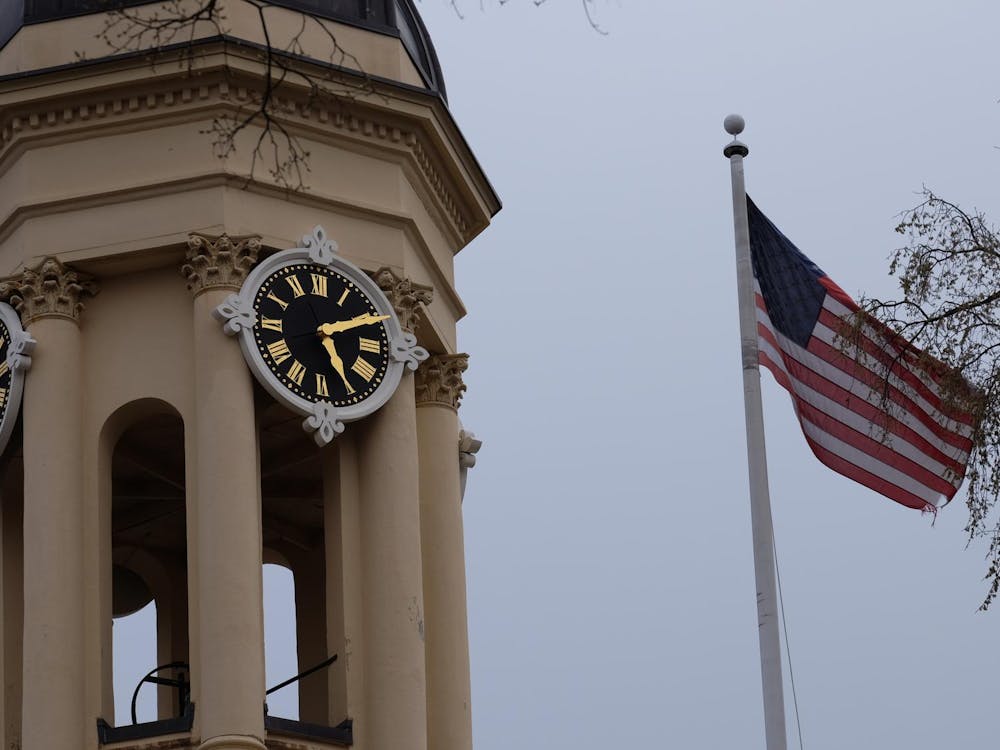One year ago a small group of men committed a terrorist attack of unprecedented barbarity. Today we prepare to commemorate the first anniversary of the carnage we witnessed one year ago. Before we let memorials and vigils lull us into too much of what the mass media love to call "closure," it would make sense to reflect on the dramatic events of the past year and to ask ourselves where Princeton fits in.
The war on terrorism is far from over. Al-Qaida and Taliban fighters still defy a US-backed Afghan government that cannot control the majority of its territory, let alone its own officials. Saddam Hussein's Iraq develops weapons of mass destruction that threaten a thousand Sept. 11s while pundits insist that President Bush make "the case" for action. America's supposed European allies shake their heads at presumed U.S. unilateralism. Terrorists strike daily in the Middle East, Central Asia and South America. Looking beyond the fighting, it is becoming increasingly clear that only an extended commitment to replacing radical Islam in the Middle Eastern and Central Asian regimes with stable and democratic institutions can ever really "stop" terrorism. The war on terrorism will last a very long time.
Moreover, as we commemorate Sept. 11, we should remember that the horrific spectacle of aircraft plowing through skyscrapers was only a warning of what might yet be. Strong evidence shows that the same kinds of terrorists who attacked the Pentagon and World Trade Center are actively seeking weapons of mass destruction. According to a recent Gallup poll, most (70%) of Americans expected further terrorist attacks to occur in the past year. That they have been prevented is a good thing, but this should not lull us into a false sense of security. The terrorists behind the attacks of Sept. 11 planned extensively and waited until the best possible moment; there will almost certainly be a next time.
Presented with this grim picture of a world in turmoil and a nation under threat, it is natural for members of a university community to ask: "Where do we come in?" Unlike past wars, the war on terrorism has not yet required lots of soldiers or many material sacrifices. As university administrators are so fond of saying, today's college students are the leaders of tomorrow. Universities like Princeton can best contribute to the struggle against terrorism by doing what they do best — the long term shaping of ideas.
There is a right way and a wrong way to do this.
Academic institutions should work hard to train the next generation of leaders who will have to face the challenges posed by terrorists. It is also crucial that scholars provide policy makers with advice and courageous criticism. To draw an analogy to America's role in WWII, our universities should represent a "Library of Democracy," furnishing the intellectual firepower and expertise that will help build a better and safer world.
On the other hand, the recent scandal over UC Berkeley's attempt to exclude 'political' symbols like the American flag from a scheduled Sept. 11 commemoration for fear of offending extremist anti-American student groups offers a cautionary example of how intellectual relativism — the acceptance of all points of view as equally valid — can lead to moral blindness. An academic community must have the courage to draw clear moral distinctions between civilized behavior and terrorism, and not to waffle away from a stance of illegitimate objectivity. The past year has offered far too many similar examples — "divestment" from Israel, protests against "Bush's genocide in Afghanistan," to name a few at Princeton — of a similar failure to exercise moral common sense on college campuses.
Princetonians can contribute and prepare to contribute to the war on terrorism in many ways, from showing a flag in a window to preparing to participate in public life. As we approach our own Sept. 11 memorial service, let us hope for the courage and common sense to do so. Carlos Ramos-Mrosovsky is a Wilson School major from New York, NY and serves as Chairman of the Princeton Committee Against Terrorism (PCAT). He can be reached at cr@princeton.edu.







